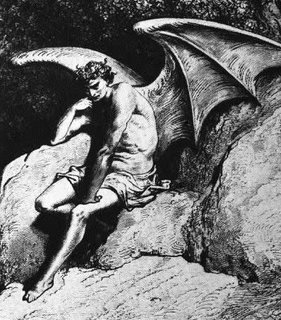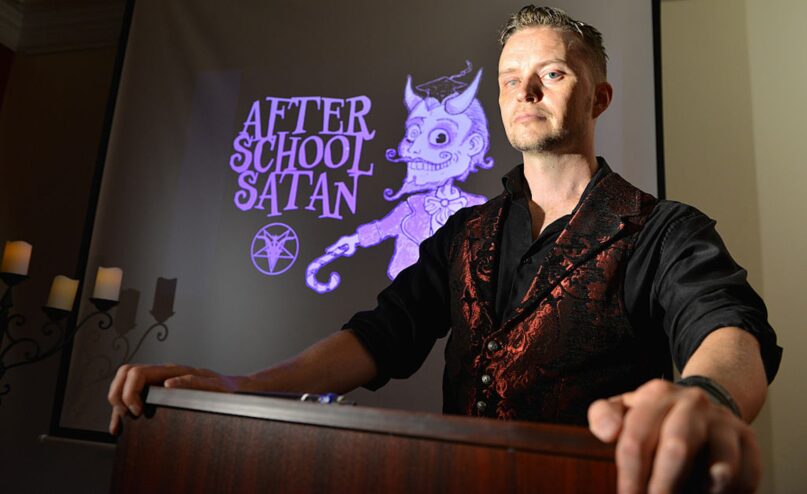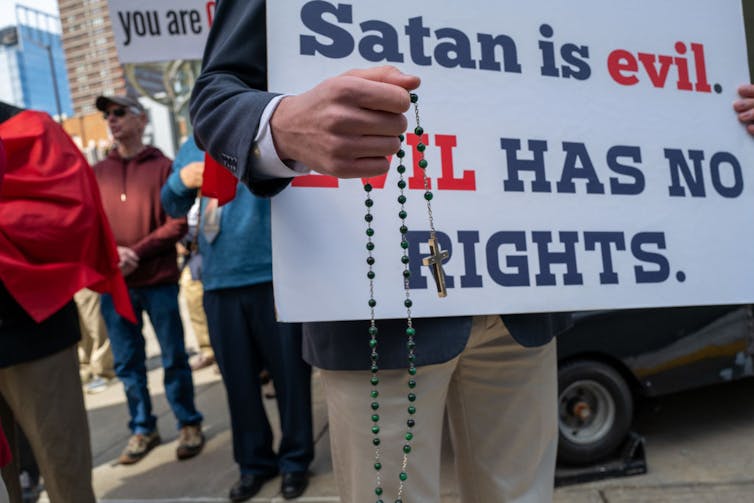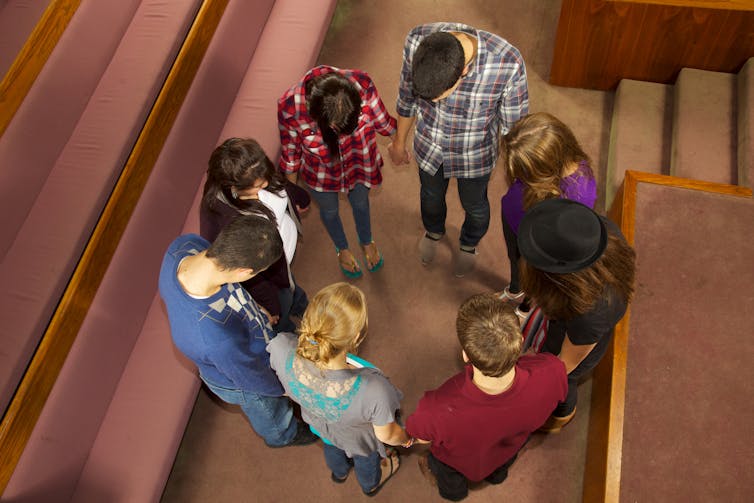Dialectical Magick
I have to thank the folks over at the Coffee Shop for the excellent article entitled Socratic Marx, which discusses this letter from Marx which was published in the Tucker Anthology The Marx and Engels Reader as: For a Ruthless Criticism of Everything Existing (1843).
This is one of my favorites short radical writings by Marx which expresses exactly what revolutionary thought is, philosophy in action. It is here we find the essence of Marx's revolutionary thought, and the phrase For a Ruthless Criticism of Everything Existing, was not lost on me when I first read this thirty-five years ago.
It is this letter which was to turn the entire socialist movement on its head, that communism is not just an extension of socialism it is something else, something different than existing socialism and social democracy. I have highlighted in bold those ideas which struck me as crucial so long ago, and remain embedded within my philosophical outlook. And this essay has not just influence me, it has influenced other radical thinkers like Raya Dunayevskaya, it is in this essay we find mention of the idea of her Marxist Humanism [1].
Out of the broom closet
I had forgotten how important the ideas in this essay had been in building the foundation of of both my view of libertarian communism and what I would later call dialectical magick; a historical materialist interpretation that magick[2] has acted as a ‘ruthless criticism of religion’ and of science/scientism. It is the original Libertation Teleology.
"The whole socialist principle in its turn is only one aspect that concerns the reality of the true human being. But we have to pay just as much attention to the other aspect, to the theoretical existence of man, and therefore to make religion, science, etc., the object of our criticism."
As Marx says in his Introduction to A Contribution to the Critique of Hegel’s Philosophy of Right Karl Marx (published in the same journal; Deutsch-Französische Jahrbücher, in February, 1844) “the criticism of religion is the prerequisite of all criticism”. I have included an excerpt from this below his letter to Rouge.
Magick historically fulfills this prerequisite, it has functioned both as a practice[3], gift economy, and a social movement that acted as a "reform of consciousness not through dogmas, but by analyzing the mystical consciousness that is unintelligible to itself, whether it manifests itself in a religious or a political form. "
Marcel Mauss; shows this in his Outline of a General Theory of Magic, which is still relevant today, the centennial of its publication. While not as well known as his The Gift: The Form and Reason for Exchange in Archaic Societies, the General Theory of Magic postulates that magic is different from religion and not only pre-dates it but represents a social function that is essentially anti-authoritarian and based on an economy of self consciousness of production. Just as The Gift shows that this magickal economy is not one that produces exchange value but a communist exchange, those with surplus exchange it with those who do not have it by holding a potlatch.
Mauss further contends that magickal thinking is still with us, and modern physics shows this with its M-theory of String phenomena. Or as Feyerabend says in "Against Method", 1975, "Thus science is much closer to myth than a scientific philosophy is prepared to admit."
Magickal economy is consistent with what Marx called "actually existing communism" in his letter to Rouge. Marx, influenced by the early anthropological work of Lewis Morgan, saw the gift economy as essentially communist. It was an economy based on magick and mediated by the shaman, as in later periods communal society would be mediated by witches, cunning men, wise women, etc.
In the gift economy the shaman reflects social power of both the status quo and its other. They can be insiders, leaders in the community or outsiders, those exiled from the community. In either case they act to make acceptable to the community 'the other' such as homosexuality and gender bending (the bardache) which Edward Carpenter, the English socialist and gay advocate, documents.

Les
“The Shaman/Trickster appears in the cave paintings of the Early European Tribes, about 18,000 about years ago. Warriors don't appear until about 9,000 years ago. Kings appeared even later. It appears historically that the Shaman/Trickster came a lot earlier, perhaps even before the cave painters appeared. The Shaman/Trickster is closely tied to hunting, and hunting and gathering were the origin of human society, maybe 50,000 years ago. The warrior and the king are possible only after the development of cities. “ THEORIES ON THE NORTH AMERICAN TRICKSTER
Magick in practice is mnemonic, it is a remembrance of mans development of tool making and technics, the subconscious memory that labour altered our consciousness. The tools of magick, the cup, the pentangle, the athame, the wand and the sword are mnemonic symbols of the development and transition of the human from the dominance of the world of nature, into nature’s transformer, the magi. The invocations and the evocations of magickal chants are the voice of humankind speaking of and to the names of the natural world as it are transformed by our labour. [4] As the world changes so do the deities, the reifications of the world made in the image of man. Or to put it another way "That which is mostly observed, is that which replicates the most."
“Man makes religion, religion does not make man. Religion is, indeed, the self-consciousness and self-esteem of man who has either not yet won through to himself, or has already lost himself again. But man is no abstract being squatting outside the world. Man is the world of man – state, society. This state and this society produce religion, which is an inverted consciousness of the world, because they are an inverted world,” as Marx says in his introduction to his Critique of Hegel below. And we could add that man also makes science, and that magick which originates science[5], as it does religion, it continues to be a different form of science, natural science as opposed to technic based science of capitalism.
And as Frazer says in the Golden Bough; "So far, therefore, as the public profession of magic has been one of the roads by which men have passed to supreme power, it has contributed to emancipate mankind from the thraldom of tradition and to elevate them into a larger, freer life, with a broader outlook on the world. This is no small service rendered to humanity. And when we remember further that in another direction magic has paved the way for science, we are forced to admit that if the black art has done much evil, it has also been the source of much good; that if it is the child of error, it has yet been the mother of freedom and truth."[6]
We can see within the modern Occult movements in the 19th and 20th centuries this dialectic of religion and politics, of liberation and oppression played out in the microcosm of secret societies and the macrocosm of mass movements for social change which includes the neo-pagan and witchcraft revivals that are occurring today. We can see it in the popular response to Harry Potter novels by millions of children, for whom magickal thinking has not been repressed. This is not mere mysticism, but as Freud called it the ‘return of the repressed’[7]. Magick has influenced much of the modern revolutionary movements, from the time of Byron and Shelley (called satanic poets by their contemporaries) through to Surrealism, the beat poets such as libertarian communist Kenneth Rexroth and even Situationism, just as it has broadened our understanding of early human communities through the sciences of sociology and anthropology.
In the information age the return of magick in the 20th century , at the height of capitalisms ascendance its technological transformation of society, shows that the alienation of production and its reification into commodity and consumer, satisfies the individuals need to create meaning and power out of powerlessness. Magick functions not only for creating meaning and power for the individual, but to bring individuals back into contact with each other as creators of community; it answers the need for the village and commune in the midst of a mass consumer culture.
If we are to understand magick as part of the revolutionary movement, we must discard popular conspiracy theory notions of it and apply dialectical and historical materialist theory to it. This then is the challenge that dialectical libertarians face. The study of magick has long influenced revolutionary thinkers[8], as well as reactionaries[9]. The reactionary thinker sees the Occult as competing secret societies vying for power[10], the libertarian communist, sees magick as humanities gnosis of ourselves as self conscious creators of our world as Joseph Dietzgen[11] contends with his theory of Cosmic Dialectics.
Letters from the Deutsch-Französische Jahrbücher
M. to R.
Marx to Ruge
Kreuznach, September 1843
I am glad that you have made up your mind and, ceasing to look back at the past, are turning your thoughts ahead to a new enterprise.[22] And so — to
But whether the enterprise comes into being or not, in any case I shall be in
In
The internal difficulties seem to be almost greater than the external obstacles. For although no doubt exists on the question of “Whence,” all the greater confusion prevails on the question of “Whither.” Not only has a state of general anarchy set in among the reformers, but everyone will have to admit to himself that he has no exact idea what the future ought to be. On the other hand, it is precisely the advantage of the new trend that we do not dogmatically anticipate the world, but only want to find the new world through criticism of the old one. Hitherto philosophers have had the solution of all riddles lying in their writing-desks, and the stupid, exoteric world had only to open its mouth for the roast pigeons of absolute knowledge to fly into it. Now philosophy has become mundane, and the most striking proof of this is that philosophical consciousness itself has been drawn into the torment of the struggle, not only externally but also internally. But, if constructing the future and settling everything for all times are not our affair, it is all the more clear what we have to accomplish at present: I am referring to ruthless criticism of all that exists, ruthless both in the sense of not being afraid of the results it arrives at and in the sense of being just as little afraid of conflict with the powers that be.
Therefore I am not in favour of raising any dogmatic banner. On the contrary, we must try to help the dogmatists to clarify their propositions for themselves. Thus, communism, in particular, is a dogmatic abstraction; in which connection, however, I am not thinking of some imaginary and possible communism, but actually existing communism as taught by Cabet, Dézamy, Weitling, etc. This communism is itself only a special expression of the humanistic principle, an expression which is still infected by its antithesis — the private system. Hence the abolition of private property and communism are by no means identical, and it is not accidental but inevitable that communism has seen other socialist doctrines — such as those of Fourier, Proudhon, etc. — arising to confront it because it is itself only a special, one-sided realisation of the socialist principle.
And the whole socialist principle in its turn is only one aspect that concerns the reality of the true human being. But we have to pay just as much attention to the other aspect, to the theoretical existence of man, and therefore to make religion, science, etc., the object of our criticism. In addition, we want to influence our contemporaries, particularly our German contemporaries. The question arises: how are we to set about it? There are two kinds of facts which are undeniable. In the first place religion, and next to it, politics, are the subjects which form the main interest of
Reason has always existed, but not always in a reasonable form. The critic can therefore start out from any form of theoretical and practical consciousness and from the forms peculiar to existing reality develop the true reality as its obligation and its final goal. As far as real life is concerned, it is precisely the political state — in all its modern forms — which, even where it is not yet consciously imbued with socialist demands, contains the demands of reason. And the political state does not stop there. Everywhere it assumes that reason has been realised. But precisely because of that it everywhere becomes involved in the contradiction between its ideal function and its real prerequisites.
From this conflict of the political state with itself, therefore, it is possible everywhere to develop the social truth. just as religion is a register of the theoretical struggles of mankind, so the political state is a register of the practical struggles of mankind. Thus, the political state expresses, within the limits of its form sub specie rei publicae,[as a particular kind of state] all social struggles, needs and truths. Therefore, to take as the object of criticism a most specialised political question — such as the difference between a system based on social estate and one based on representation — is in no way below the hauteur des principes. [Level of principles] For this question only expresses in a political way the difference between rule by man and rule by private property. Therefore the critic not only can, but must deal with these political questions (which according to the extreme Socialists are altogether unworthy of attention). In analysing the superiority of the representative system over the social-estate system, the critic in a practical way wins the interest of a large party. By raising the representative system from its political form to the universal form and by bringing out the true significance underlying this system, the critic at the same time compels this party to go beyond its own confines, for its victory is at the same time its defeat.
Hence, nothing prevents us from making criticism of politics, participation in politics, and therefore real struggles, the starting point of our criticism, and from identifying our criticism with them. In that case we do not confront the world in a doctrinaire way with a new principle: Here is the truth, kneel down before it! We develop new principles for the world out of the world’s own principles. We do not say to the world: Cease your struggles, they are foolish; we will give you the true slogan of struggle. We merely show the world what it is really fighting for, and consciousness is something that it has to acquire, even if it does not want to.
The reform of consciousness consists only in making the world aware of its own consciousness, in awakening it out of its dream about itself, in explaining to it the meaning of its own actions. Our whole object can only be — as is also the case in Feuerbach’s criticism of religion — to give religious and philosophical questions the form corresponding to man who has become conscious of himself.
Hence, our motto must be: reform of consciousness not through dogmas, but by analysing the mystical consciousness that is unintelligible to itself, whether it manifests itself in a religious or a political form. It will then become evident that the world has long dreamed of possessing something of which it has only to be conscious in order to possess it in reality. It will become evident that it is not a question of drawing a great mental dividing line between past and future, but of realising the thoughts of the past. Lastly, it will become evident that mankind is not beginning a new work, but is consciously carrying into effect its old work.
In short, therefore, we can formulate the trend of our journal as being: self-clarification (critical philosophy) to be gained by the present time of its struggles and desires. This is a work for the world and for us. It can be only the work of united forces. It is a matter of a confession, and nothing more. In order to secure remission of its sins, mankind has only to declare them for what they actually are.
Introduction to A Contribution to the Critique of Hegel’s Philosophy of Right
Karl Marx in Deutsch-Französische Jahrbücher, February, 1844
For
The profane existence of error is compromised as soon as its heavenly oratio pro aris et focis [“speech for the altars and hearths”] has been refuted. Man, who has found only the reflection of himself in the fantastic reality of heaven, where he sought a superman, will no longer feel disposed to find the mere appearance of himself, the non-man [Unmensch], where he seeks and must seek his true reality.
The foundation of irreligious criticism is: Man makes religion, religion does not make man. Religion is, indeed, the self-consciousness and self-esteem of man who has either not yet won through to himself, or has already lost himself again. But man is no abstract being squatting outside the world. Man is the world of man – state, society. This state and this society produce religion, which is an inverted consciousness of the world, because they are an inverted world. Religion is the general theory of this world, its encyclopaedic compendium, its logic in popular form, its spiritual point d’honneur, its enthusiasm, its moral sanction, its solemn complement, and its universal basis of consolation and justification. It is the fantastic realization of the human essence since the human essence has not acquired any true reality. The struggle against religion is, therefore, indirectly the struggle against that world whose spiritual aroma is religion.
Religious suffering is, at one and the same time, the expression of real suffering and a protest against real suffering. Religion is the sigh of the oppressed creature, the heart of a heartless world, and the soul of soulless conditions. It is the opium of the people.
The abolition of religion as the illusory happiness of the people is the demand for their real happiness. To call on them to give up their illusions about their condition is to call on them to give up a condition that requires illusions. The criticism of religion is, therefore, in embryo, the criticism of that vale of tears of which religion is the halo.
Criticism has plucked the imaginary flowers on the chain not in order that man shall continue to bear that chain without fantasy or consolation, but so that he shall throw off the chain and pluck the living flower. The criticism of religion disillusions man, so that he will think, act, and fashion his reality like a man who has discarded his illusions and regained his senses, so that he will move around himself as his own true Sun. Religion is only the illusory Sun which revolves around man as long as he does not revolve around himself.
It is, therefore, the task of history, once the other-world of truth has vanished, to establish the truth of this world. It is the immediate task of philosophy, which is in the service of history, to unmask self-estrangement in its unholy forms once the holy form of human self-estrangement has been unmasked. Thus, the criticism of Heaven turns into the criticism of Earth, the criticism of religion into the criticism of law, and the criticism of theology into the criticism of politics.
For Donalda Cassel, Larry Gambone, Jane Leverick, Sam Wagar
FOOTNOTES
[1] communism is itself only a special expression of the humanistic principle
[2] The use of Magick with a 'k' comes from Giambattista della Porta (aka John Baptist della Porta) (1535-1615) Natural Magick , Published in 1558 in Italian and then in 1658 in English. ( In this wildly popular series, now expanded to 20 books, della Porta claims the natural world can be manipulated by the natural philosopher through theoretical and practical experiment. He describes ways of beautifying women, tempering steel, counterfeiting precious stones, identifying natural magnets, and forming new plants and animals.) Natural Magick predates Aleister Crowley’s use of Magick spelled with a K, though he is credited with popularizing this spelling.
[3] Magick is the Science and Art of causing Change to occur in conformity with Will.
In one sense Magick may be defined as the name given to Science by the vulgar.
[4] Mircea Eliade's The Forge and the Crucible (1956) asserts that the ancient art of alchemy begins in the bronze age with the forging of tools, and that western systems of initiation into secret knowledge originate in this era with the metal crafts guilds and secret societies of smithy’s.
[5] Astrology is the mother of Astronomy, and Alchemy is the mother of Chemistry as historians of science like to say, but Alchemy is also different from chemistry in that it postulates that the observer affects what is observed, which is the quantum theory of Schrodingers Cat, and that the observer is transformed in the process.
[6] Definition and Theorems of Magick , Magick in Theory and Practice, Aleister Crowley
[7] The Return of the Repressed The strange case of Masud Khan, Robert S. Boynton, The Boston Review
[8] William Godwin, the Lives of the Necromancers, 1834
[9] Sir Walter Scott, Letters on Demonology and Witchcraft, 1833
[10] “the history of the world is the history of competing secret societies” Mumbo-Jumbo By Ishmael Reed which deals with Hoodoo and the spirit of Jazz Age which 'jez grew' in 1920's






